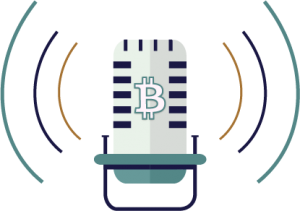
The Cryptocurrency Informer
Bitcoin (Maybe) Hit An All Time High; ETH 2.0 Launches Phase 0; ETH 2.0 Taxable Consequences
This week we’ll be talking about Bitcoin’s all-time-high, Ethereum 2.0, and some of the tax-related questions people have been having about staking.
More information on each of these topics can be found below.
More Information
December 4th, 2020: Bitcoin (Maybe) Hit An All Time High; ETH 2.0 Launches Phase 0; ETH 2.0 Taxable Consequences
(00:26) The big news this past week is that Bitcoin hit it’s all-time high since December 2017 – or did it? Most people in this space are aware that December 2017 was when Bitcoin first reached it’s all time high price. It’s when Bitcoin gained a lot more popularity in the mainstream and when a lot more people got into the space. But, if you want to get specific about the exact price, it’s actually a bit difficult, as prices vary depending on where the coin was exchanged. Coinmarketcap actually lists the all time high of $20,089.00 on December 17th, 2017. CoinDesk has a graphic showing the all time high of BTC in December 2017 from three major exchanges… and they all have different values. Their own price index, known as the CoinDesk Bitcoin Price Index, lists the December 2017 all time high as $19,783.
So, depending on how you look at it, Bitcoin may or may not have reached and exceeded it’s all time high this week. However, much of the community did indeed celebrate on Monday, when Bitcoin reached $19,850, according to CoinDesk.
Usually when discussing Bitcoin’s ATH, I personally have found it most convenient to say “nearly 20k”. If we are following the CoinDesk pricing model, that holds true. Interestingly, even though Coinmarketcap is still listing the all time high as over 20k back in 2017, they are currently holding a contest to guess when Bitcoin will reach $20,000.
(02:01) Next up, let’s talk about Ethereum 2.0 – this week, phase 0 occurred, bringing The Beacon Chain into existence. The first major change that the Beacon Chain will bring is the transition from using a Proof of Work consensus to a Proof of Stake consensus, which will effectively replace mining.
Proof of stake, like proof of work, is a consensus mechanism. The specific proof of work consensus model that is being used in the Beacon Chain is called Casper.
Instead of miners utilizing the energy of their mining rigs to create and validate blocks, ETH 2.0 will utilize validators, who are participants in the network who have at least 32 ETH, to propose and vote on the creation of blocks. A validator is chosen pseudo-randomly or randomly to create or propose a block. Blocks are validated once a specific number of validators have stated that they’ve seen the block. Validators who propose a block and validators who then confirm they have seen the proposed block, are rewarded ETH for their work, either in terms of network fees or a predetermined network issuance.
If a validator is selected and isn’t available at the time of selection, they essentially lose a bit of ETH. However, if a validator attempts to act maliciously by attempting to compromise the validity of a block, a mechanism, called slashing, is in place that siphons some or all of their staked ETH and then removes them from the network. This reward/penalty scheme is what fuels the PoS mechanism and (theoretically) lowers the chance of bad actors being involved.
You can go to launchpad.ethereum.org to get more details about the process of becoming a validator, and to start staking.
(03:42) With the launch of The Beacon Chain many crypto users are asking about the related tax implications. Currently, the two main questions people are asking are “how are my staking rewards taxed” and “will the future ETH to ETH 2 transition be a taxable event”. One of the BitcoinTaxes full-service partners, Andrew Gordon, released a great FAQ about the tax implications of ETH 2.0, which we’ve linked on our blog talk.bitcoin.tax.
This FAQ answers both the aforementioned questions – regarding staking, the FAQ states that “Staking rewards are considered income at the time of receipt and taxed as such. The fair market value in USD at the time of receipt is the amount of income that you report. It is also the cost basis for any future sales… While there is no definitive answer yet, we expect the IRS will take the position…that the staking rewards will be considered “received” when they are given, even if you can’t access or control them right away.” Regarding how ETH to ETH2 will be taxed, if at all, Gordon and his team state that “General consensus in the crypto community says that Ethereum 2.0 is completely replacing the original Ethereum. In this case, there is no taxable event to report for the conversion of ETH tokens to ETH 2.0.” However, the FAQ acknowledges that we don’t know for sure yet how ETH to ETH2 will occur, nor do we know how the IRS will treat these events until they release some specific guidance.
That’s it for this week’s episode of The Cryptocurrency Informer. Don’t forget – if you want to read more about each of these stories, go to talk.bitcoin.tax and click on The Cryptocurrency Informer link. Every episode is accompanied by a number of relevant links for each story, so you can do your own in-depth research on the topics that interest you.
Make sure you subscribe on Apple Music, Spotify, and Google Play Music so you can catch every new episode we release.
Have a great weekend everyone – stay safe and stay informed!
Get Alerts – Never Miss An Episode!
Disclaimer
This website is provided for informational purposes only. The website does not constitute financial, tax or legal advice, and is not intended to be used by anyone for the purpose of financial advice, legal advice, tax avoidance, promoting, marketing or recommending to any other party any matter addressed herein. For financial or legal advice please consult your own professional.

